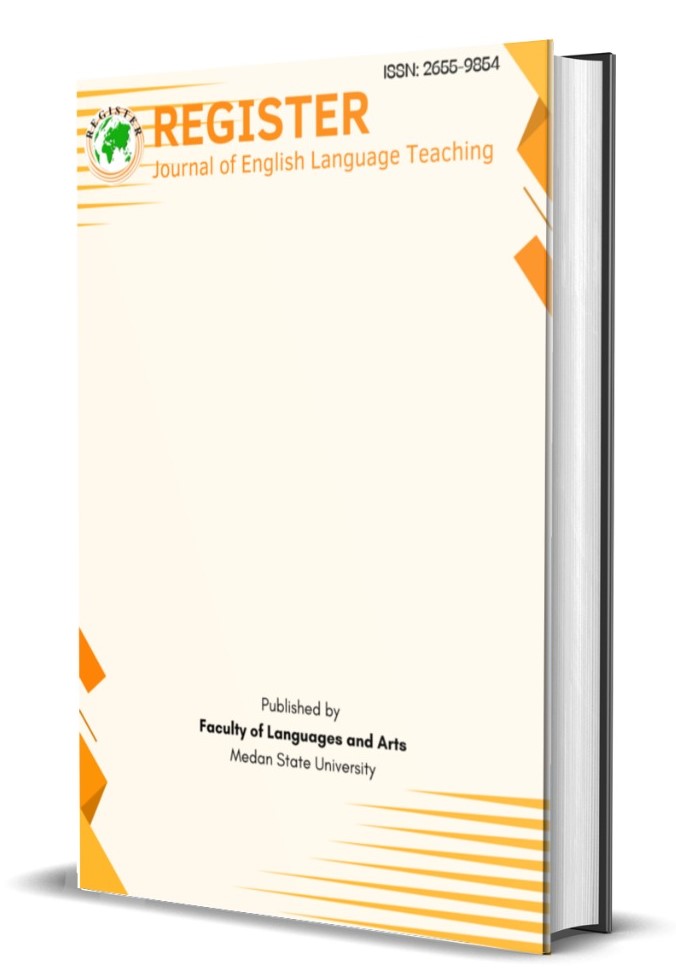Developing Formative Assessment on Procedure Text through Socrative for Tenth Grade Students at MAN 2 Model Medan
DOI:
https://doi.org/10.24114/reg.v14i2.66160Abstract
This research aimed to develop a formative assessment on procedure text through Socrative for tenth grade students at MAN 2 Model Medan. This research was conducted because it was found that the student still use the traditional formative assessment. The research followed the Research and Development (R&D) method, consisting of six stages: gathering information and data, analyzing the data, designing the media, validating by experts, revising, and producing the final product. The subjects of the study included 36 students from class X-N and one of the English teacher. The data were collected by interviewing the English teacher and administering a questionnaire to the students to assess their needs. The results indicated that the students need a developing of formative assessment through Socrative. The product was validated by two experts: an English lecturer and an English teacher. The validation process included evaluating linguistic aspects, the assessment process, the product and content, and the layout of the media. The product received an overall validation score of 93.95%, indicating that the formative assessment developed through Socrative is suitable for use in the classroom. Based on this validation, the formative assessment is considered effective and appropriate for improving the learning experience of tenth grade students at MAN 2 Model Medan, particularly in enhancing their understanding of reading procedure texts.Downloads
Published
Issue
Section
License
Copyright (c) 2025 Yumna Azzahra, Safrida Lubis

This work is licensed under a Creative Commons Attribution-NonCommercial-ShareAlike 4.0 International License.
Authors who publish with this journal agree with the following terms:
- Authors retain copyright and grant the journal right of first publication with the work simultaneously licensed under a Creative Commons Attribution License that allows others to share the work with an acknowledgment of the work's authorship and initial publication in this journal.
- Authors are able to enter into separate, additional contractual arrangements for the non-exclusive distribution of the journal's published version of the work (e.g., post it to an institutional repository or publish it in a book), with an acknowledgement of its initial publication in this journal.
- Authors are permitted and encouraged to post their work online (e.g., in institutional repositories or on their website) prior to and during the submission process, as it can lead to productive exchanges, as well as earlier and greater citation of published work (See The Effect of Open Access).
- This work is licensed under a Creative Commons Attribution-ShareAlike 4.0 International License.








